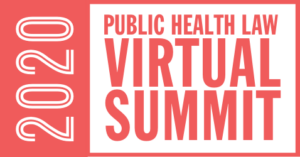
Legal Epidemiology and Crisis Standards of Care
Concurrent Session Block 1: 1:15 – 2:15 p.m. ET Wednesday, September 16
Presentations
Is Law Working? A Brief Look at the Legal Epidemiology of COVID-19
Legal intervention has featured prominently in the response to the COVID-19 pandemic and researchers have tried to guide that response in real-time. Studies have tried to measure rapidly changing legal interventions, and tentatively to assess their current effects and predict their future impact. In a moment when law can have huge positive and negative effects, this kind of legal epidemiology research can fairly be regarded as a crucial element of the overall COVID-19 response. This session with provide a rapid overview of important takeaways from this evolving evidence base.
- Scott Burris, J.D., Professor of Law, Temple Law School and Director, Center for Public Health Law Research, Temple University
- Evan Anderson, JD, PhD, Senior Fellow, Center for Public Health Initiatives, University of Pennsylvania
Allocation of Scarce Medical Resources and Crisis Standards of Care
In March and April, COVID-19 patient surges tested the health care system and highlighted the need to prepare to accommodate larger patient capacity in the months that followed. As a primary consideration, governments and health care institutions should utilize existing powers and resources to avoid shortages and mitigate their severity. If shortages do occur, most states have begun to develop crisis standards of care protocols to assist in making decisions about allocating scarce resources. This session will discusses important protections that should be taken into consideration when constructing crisis standards of care plans, including incorporating protections that prioritize antidiscrimination, fairness, and equity in allocation decision making.
- Lance Gable, JD, MPH, Associate Professor of Law, Wayne State University Law School